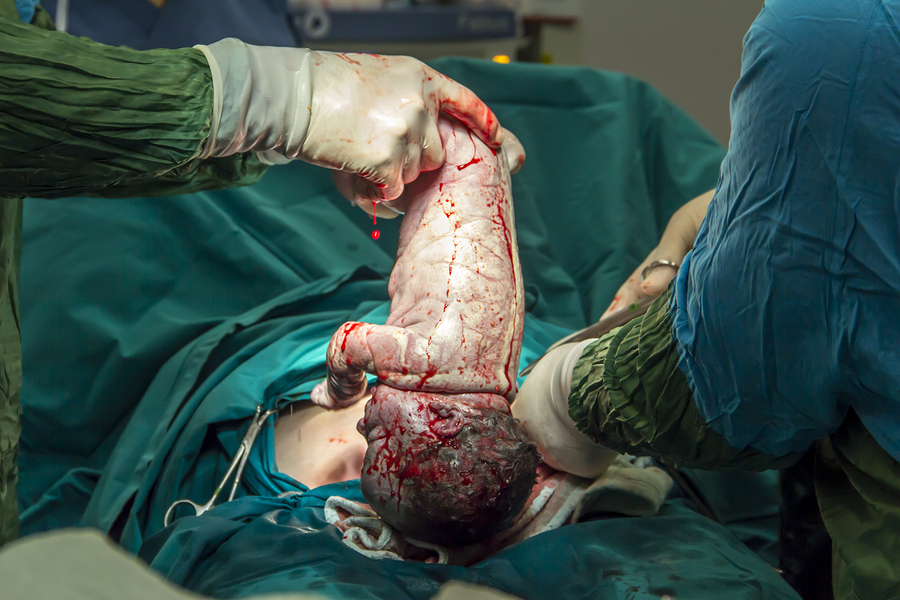C-sections are sometimes inevitable and often necessary to save the lives of mother and baby. However, elective C-section have skyrocketed in that last three decades increasing respiratory problems, obesity and altering a baby’s microbiome influencing allergies and asthma later in life. New evidence shows they also cause altered patterns of cell death across the brain acute effects on human neurodevelopment that may lead to long-lasting changes in the brain and behavior.
The rate of cesarean section (C-section) delivery worldwide far exceeds the World Health Organization’s recommended rate. C-section delivery has now been linked to behavioral effects in offspring. Human studies are confounded by the medical complications, altered birth timing, and maternal factors associated with C-section delivery.
RELATED STORY:
In the United States, the rate of cesarean delivery (CD) has risen 48% since 1996, reaching a level of 31.8% in 2007. This trend is reflected in many parts of the world, with the most populous country in the world, China, approaching 50% and some private clinics in Brazil are approaching 80%. While a significant number of CD are performed for obstetrical indications, most are simply due to maternal request and may incur several risks for the child.
Most women are unaware that babies born by elective C-section are much more likely to develop health problems that many newborns who are delivered naturally do not experience. The babies may miss out on critical hormonal and physiological changes during labour which help babies develop.
A Danish study examining 34,000 deliveries suggests babies born by C-section were up to four times more likely to have respiratory problems than those born naturally.
A recent study also showed that caesarean-born babies are also at double the risk of becoming obese children as those delivered naturally.
Women who have their first child by cesarean are also more likely to have placenta-related problems in their second pregnancy, research suggests.
Until fairly recently, babies were thought to be born with sterile guts free from bacteria. But we now know that babies are born with a gutful of microbes and that at least some of these come from a mother’s vaginal canal during birth.
RELATED STORY:
Babies born by C-section are thought to miss out on these bacteria, which could explain why their microbiomes look different. The ecosystem of microbes that live inside us has been implicated in a range of health issues, so this may explain why babies born by C-section are more likely to grow up overweight and to develop allergies and asthma in later life.
Cesarean-born mice show altered patterns of cell death across the brain, exhibiting greater nerve cell death than vaginally delivered mice in at least one brain area, a finding by Georgia State University researchers that suggests birth mode may have acute effects on human neurodevelopment that may lead to long-lasting changes in the brain and behavior.
The team of neuroscientists examined the effect of birth mode (vaginal delivery versus Cesarean section) on neuronal cell death, an important process that reshapes neural circuits early in development. This process, which takes place in mice during the first week after birth, also occurs in humans. Their study’s findings are published in the journal Proceedings of the National Academy of Sciences.
Dr. Alexandra Castillo-Ruiz, Dr. Nancy Forger and their students in the Neuroscience Institute at Georgia State addressed these limitations in a carefully controlled study in mice by examining the brains of offspring before and after a vaginal or Cesarean birth up to weaning age, carefully matching pups for time of delivery.
They found that vaginally delivered mice had a decrease in cell death across the brain within hours of birth, but this did not occur in Cesarean-born offspring. The most dramatic difference was seen in a region of the hypothalamus that regulates the stress response and brain-immune interactions. The greater cell death in Cesarean-delivered newborns was associated with a reduction in the number of neurons in at least one brain area and was also associated with altered behavior in a maternal separation test.
RELATED STORY:
Birth mode did not affect general measures of development such as total brain size or day of eye-opening in juvenile mice. However, the authors did observe increased weight gain in Cesarean-born mice at weaning age, which is consistent with clinical reports of higher body mass index in humans born by C-section.
*Article originally appeared at Prevent Disease.












